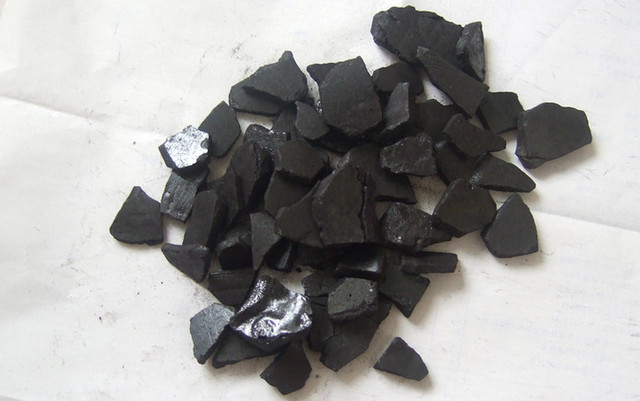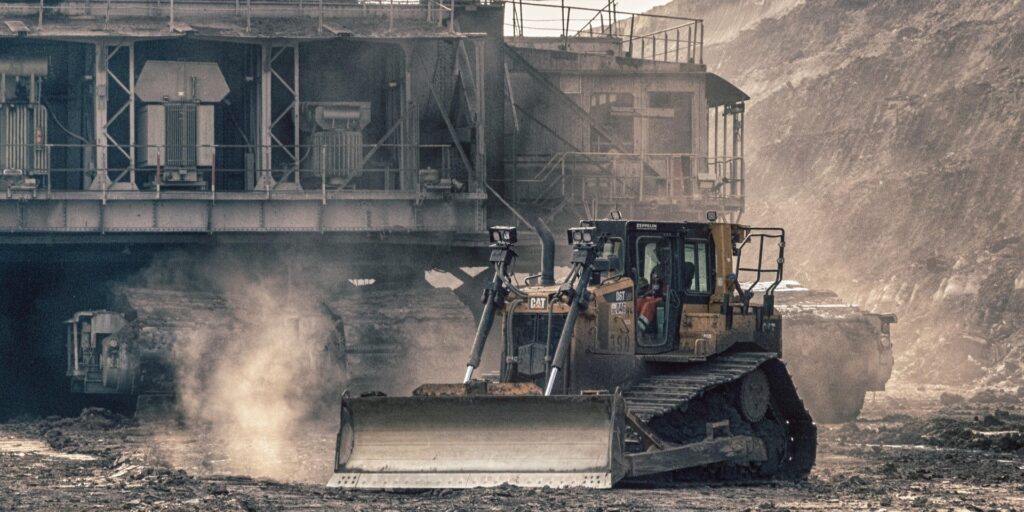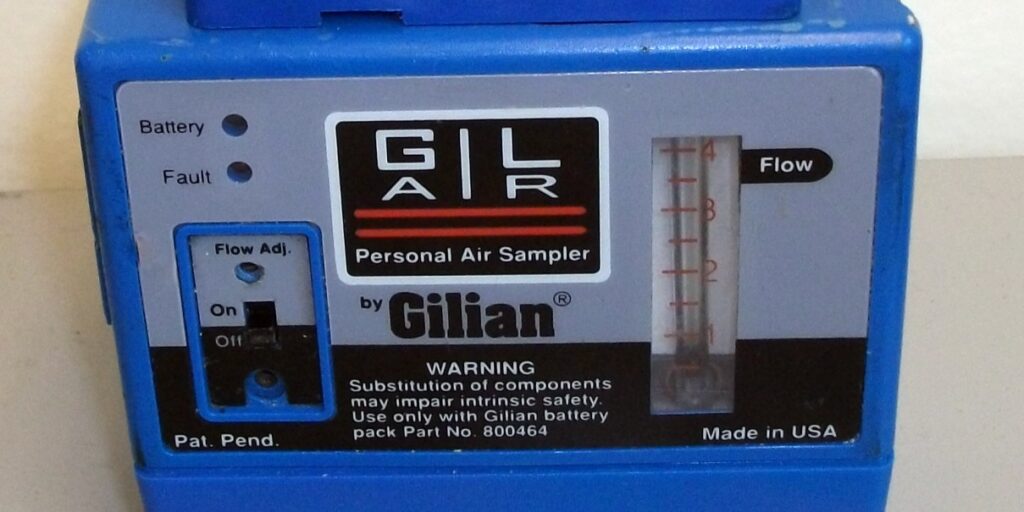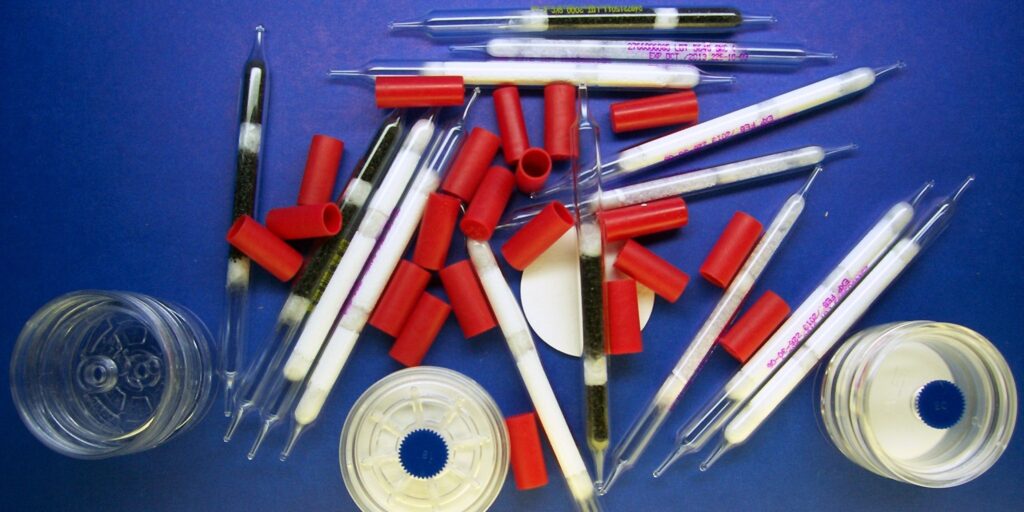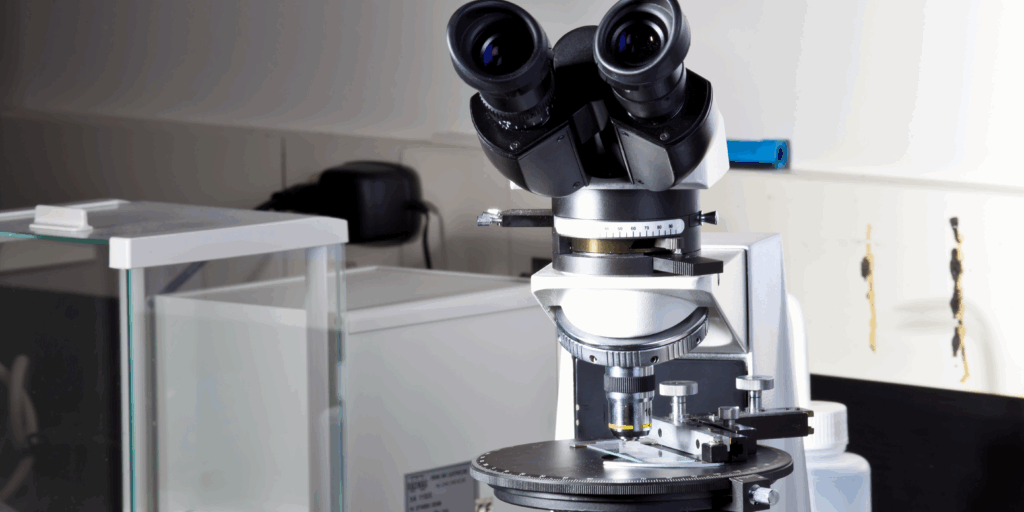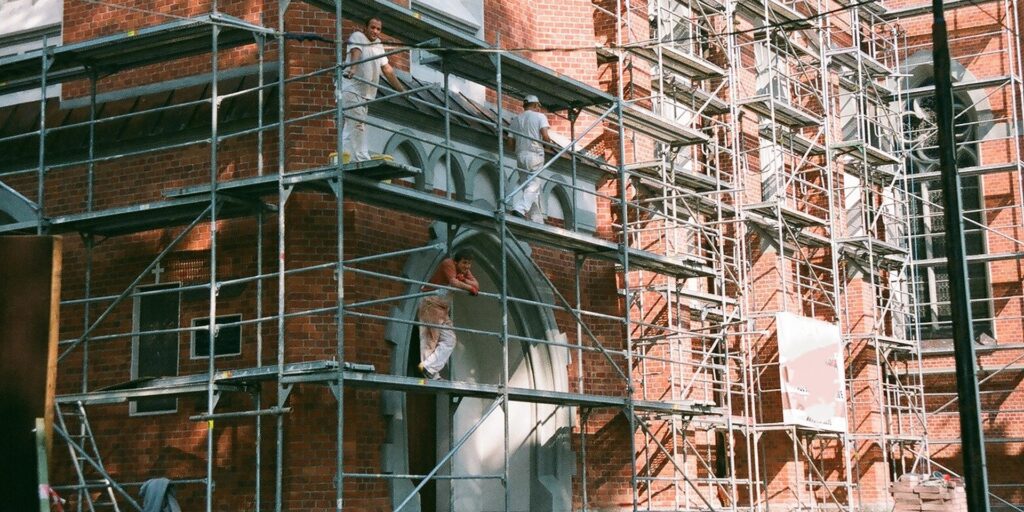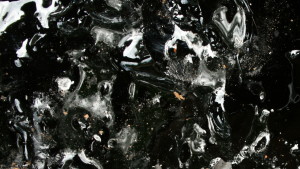 At LCS Laboratory Inc., we provide specialized testing services to identify the presence of coal tar in roofing materials, a key need for industrial hygiene and workplace safety. Using ASTM D450 and D4 standards, our screening test distinguishes between roofing tar made from coal and that made from mineral oil—two substances with similar appearance but vastly different chemical compositions and safety considerations.
At LCS Laboratory Inc., we provide specialized testing services to identify the presence of coal tar in roofing materials, a key need for industrial hygiene and workplace safety. Using ASTM D450 and D4 standards, our screening test distinguishes between roofing tar made from coal and that made from mineral oil—two substances with similar appearance but vastly different chemical compositions and safety considerations.
Why Coal Tar Identification Matters in Roofing Applications
Coal tar, commonly found in roofing tar, contains high concentrations of graphite, asphaltenes, and hazardous Polynuclear Aromatic Hydrocarbons (PAHs). These compounds are produced at extreme temperatures ranging from 1100°C to 1700°C, leading to the formation of heavy PAHs and even elemental carbon. By contrast, mineral oil tar is distilled at much lower temperatures (450°C to 600°C), resulting in a safer product with significantly fewer PAHs. Identifying the presence of coal tar in roofing materials is essential for controlling worker’s exposure to hazardous substances, especially during removal or replacement.
Coal Tar Screening by Solubility Testing
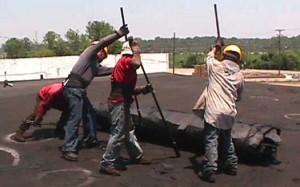 LCS Laboratory offers a reliable screening test based on ASTM methods D450 and D4 to confirm coal tar presence in roofing materials. This process involves dissolving tar in carbon disulfide and measuring its solubility, then comparing it to coal tar solubility standards set by ASTM. A positive match confirms the sample as coal tar, providing clients with essential information about the material’s composition and potential hazards.
LCS Laboratory offers a reliable screening test based on ASTM methods D450 and D4 to confirm coal tar presence in roofing materials. This process involves dissolving tar in carbon disulfide and measuring its solubility, then comparing it to coal tar solubility standards set by ASTM. A positive match confirms the sample as coal tar, providing clients with essential information about the material’s composition and potential hazards.
Benefits of Coal Tar Testing for Workplace Safety
Understanding whether roofing tar contains coal-based or oil-based components has clear benefits:
- Safety Compliance: Supports compliance with regulations regarding worker exposure to Coal Tar Pitch Volatiles (CTPVs).
- Reduced Health Risks: Limits exposure to hazardous PAHs associated with coal tar, especially during demolition or renovation.
- Accurate Material Identification: Enables precise categorization of roofing materials for safe handling and disposal.
Additional Testing for Coal Tar Pitch Volatiles (CTPVs)
In addition to our solubility screening, LCS Laboratory provides targeted testing for Coal Tar Pitch Volatiles (CTPVs) in roofing tar using the NIOSH 5515 method. This test identifies and quantifies specific regulated PAH compounds, offering a deeper analysis for clients needing detailed data on PAH concentrations in roofing materials.
How to Submit a Sample for Coal Tar Testing
To order a test, simply send a 2″ by 2″ sample of the roofing material with a high concentration of tar, preferably with tar overflow. Please complete the Request for Analysis Form with details on the test required, your contact information, and preferred turnaround time.
For more information on roofing tar testing or to discuss your specific project needs, please email us. At LCS Laboratory, we are committed to delivering precise, standards-compliant testing that supports your health and safety goals.

